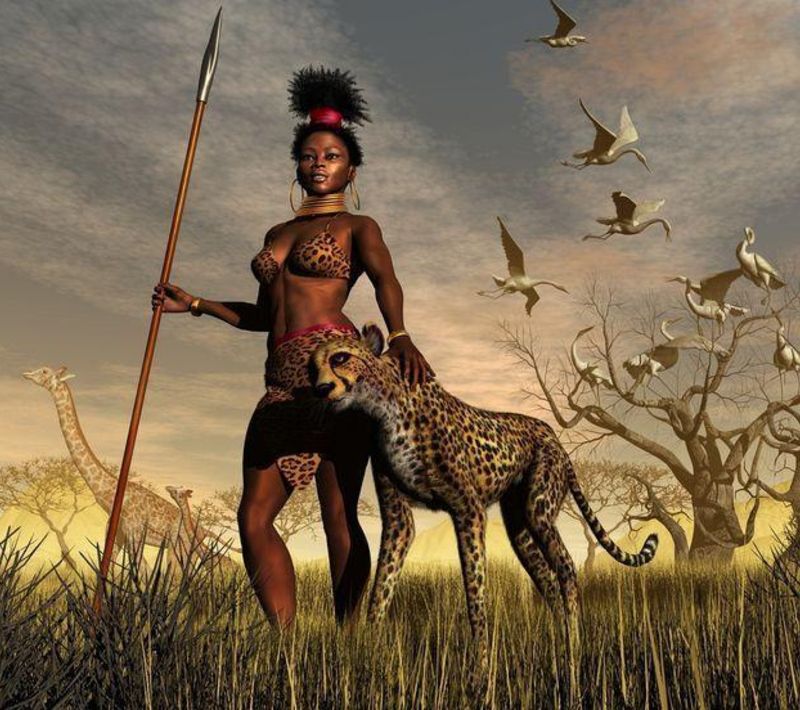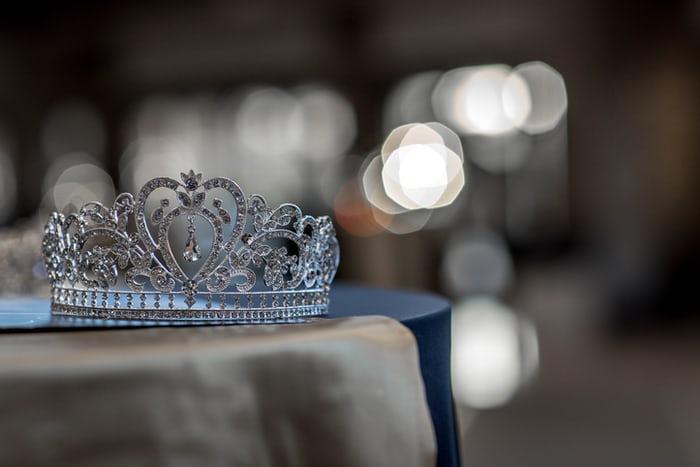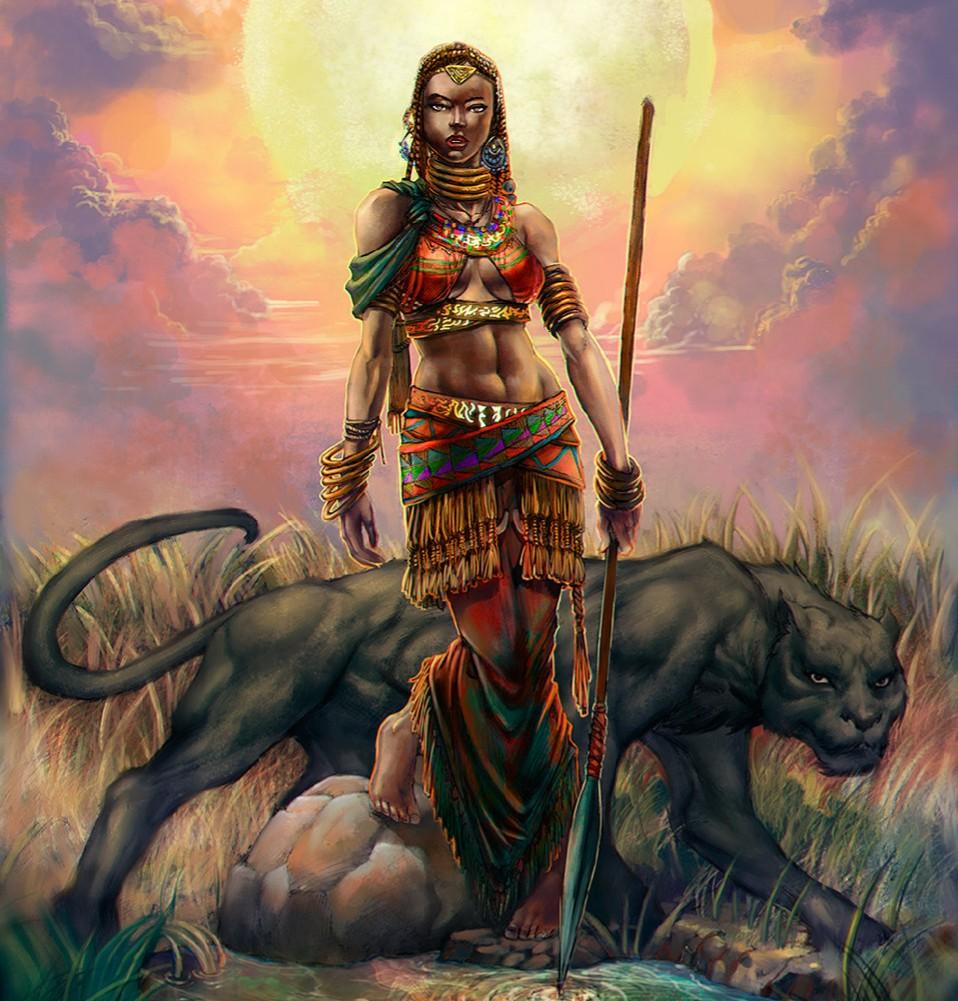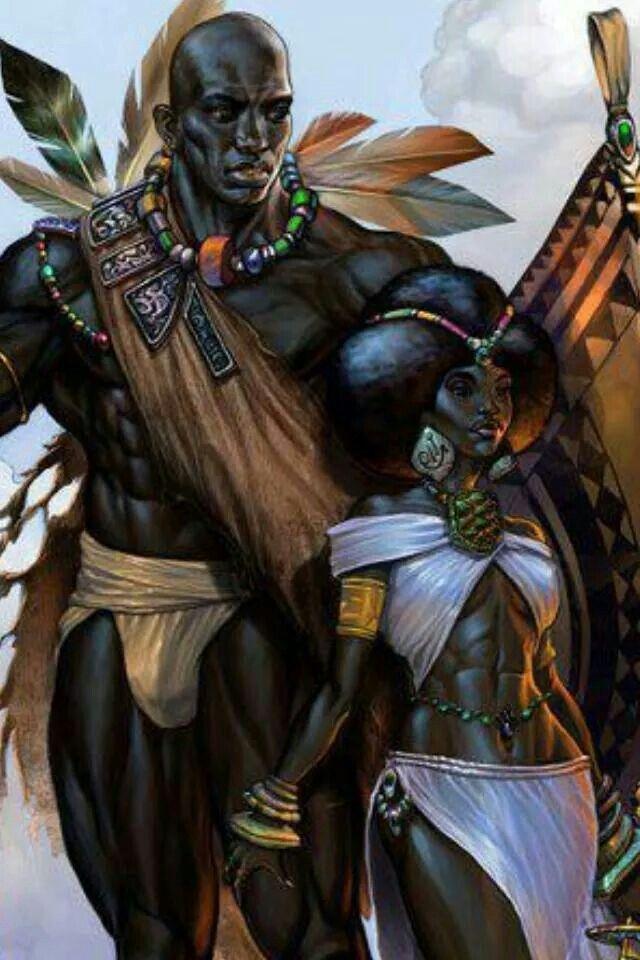Princess Yennenga: The African Warrior Princess Who Found Love For Herself

Remember your feminist ancestors
The story of princess Yennenga is Indeed an African adaptation of the popular “they lived happily ever after” fairytale. A story that speaks of strength, love, skillful doggedness, and willpower. The defining spirit and character of the African woman portrayed in one story, in one woman—Yennenga.
Over 900 years ago, long ago in the 12th century, Princess Yennenga was born into the great Dagomaba kingdom of Alkebulan to king Nedega. Dagomaba kingdom was one of the strongest empires back in that civilization, and the king had sovereign power over all, including their herds. King Nedega was a fair and hard man, but above all, he was a fair king who valued pure unadulterated talent and skills that could redeem his kingdom. His rule and ordinances were sovereign.
Being the only daughter amongst three sons, Yennenga was revered and idolized by her father, the king. Not only this, she charmed her way into the hearts of her people with her good-natured wit, charisma, as well as unique mastery of the skill of sword fighting, amidst others. Leaving herself a trail of loyalists and admirers wherever she went within and outside the kingdom.
 Image Source: Unsplash
Image Source: Unsplash
At a tender age, Yennenga began to train her mind and fashion herself in the manner of the kingdom’s warriors. She was so skilled with the sword that at age 14, she was allowed to go to war with the other warriors against the Malinke soldiers who were old enemies of the Dagomaba kingdom. Despite being a girl, she manifested a magnitude of prowess and wisdom that even her brothers didn’t have.
All of this endeared her dearly to her father king Nedega, and he was enamored with her more than any of his other male children. But more than this, the people were in awe of her and wanted to have her installed as the heir apparent to the throne of Dagomaba.
One reason Princess Yennenga was loved by all, was fondly attributed to her deft ability to wield the spear and arrow skillfully.
She was the best rider in the kingdom and only Yennenga could outsmart the most regal and powerful warriors in the Royal Court. Because of her strength, and the loyal crowd of followers she was already amassing amongst the people of the kingdom, her father, king Nedega of Dagomaba knew she would best qualify to succeed him as queen over the people of the land.
To drive home his point to all and sundry, including his opposing enemies from the tribal warriors of Malinke, he decided that Yennenga would never marry a man, and would remain at his side until it was time for her to rule her people.
Even though Princess Yennenga was beautiful, strong, willful, and a fierce warrior, like every other princess, she secretly yearned for a Prince Charming. A man of her own. A man to give her children.
When her father’s pronouncement reached her ears, she broke down in tears. She had built an admirable life amidst her father’s children, but she would never feel whole if she was not allowed to live the life of her dreams. She wanted to have a family of her own too, and there was no other way around it.
In order not to offend her beloved father, Yennenga thought over the matter for days, locking herself away to seek comfort. After thinking for a long time, she came up with a plan that would help her negotiate a change of action with her father, king Nedega.
To send her father the message of what she thought of his decision, she planted a field of wheat, and let it blossom into the most beautiful plantation ever. The king, Proud of yet another of her achievements, invited his friends and honorable members of his court to witness the bountiful growth of his daughter’s plantation. More than anything else, he boasted to all that cared to Listen that his daughter Yennenga was not only skilled with the bow, horse, and spear, she was also a great farmer.
Yennenga, happy to see how impressed he was by the field of wheat, began to take action towards the next step of her plans. When it was time to harvest the wheat, she ignored it, and let it go to complete waste. The beautiful and bounty wheat leaves soon looked deserted from care and withered to the ground, leaving the field in a despondent view.
 Image Source: Pinterest
Image Source: Pinterest
When the king noticed what the beautiful field had been turned into, he called Yennenga and asked her what this meant. The Princess used the paradox of the field to explain how she felt. A beautiful and fruitful piece of land left to lie in waste.
When princess Yennenga explained her feelings to king Nedega, instead of softening from her efforts to incorporate dialogue and offer a truce to settle their differences, he grew angry and locked her up until she had a change of mind on the matter of getting a man to build a family with.
In his defense, Princess Yennenga was too strong and skillful to be owned by a man. It was a weakness that his enemies might use to hurt her eventually, she would have to get rid of such a weakness. A warrior should never have a heart or longing to build a family.
Even though her father had her locked up in a room, her will and strong spirited defiance was too hot to be bound by chains or fetters.
Princess Yennenga had a different viewpoint on the matter. A family to love and cherish was more of a strength than a weakness. She believed she could amass more strength from building a family than the weakness her father professed. Her father’s thoughts were not the same as hers, despite being confined to a room, her defiance multiplied and she thought of the next best step to take. Nothing would stop her from her happiness, not even her beloved father.
Set on the matter, she reached out to one of the soldiers that was loyal to her and convinced him to help her escape. Together with the loyal guard, Princess Yennenga disguised herself in a man’s clothes and wrapped up her hair to hide her identity in case they came across any of the people who knew her in and outside the kingdom.
Bound on horseback, the two broke out and headed out into the night. She to freedom, the soldier to protect her.
They rode together, through the night until the enemies of their kingdom, the Malinkes, age-long enemies of the Dagomaba kingdom attacked them. The loyal soldier sacrificed his life to fend them off and save her, while Yennenga’s horse traveled far into the north.
Together with her horse, Yennenga continued to travel for days, crossing many rivers, lands, and fields.
One day, Yennenga, beaten and overcome with hunger and exhaustion, let her horse lead her through the desolate land. She had no direction in mind as she was lost in a strange place.
The horse walked for a long time until it stopped before a small house in a clearing. The house belonged to Riale, the elephant hunter.
The hunter took care of Yennenga until she was well again. They fell in love, had a son, and named him Ouedrago, after the horse which loosely translates to mean Stallion. Yennenga was grateful to the horse that had brought her to Love and family she had always yearned for.
 Image Source: Pinterest
Image Source: Pinterest
Oral literature finishes up the story by concluding that Ouedrago, the son of princess Yennenga and hunter Riale grew up stronger and even more courageous than his mother, the Princess.
History and bearers of ancient literature also tell that when Ouedrago was old enough to fend for himself, he left his parents’ home and traveled far north where he formed the cradle of the Mossi kingdom.
Before doing this, Ouedrago was said to have visited the king of Dombango, his grandfather, Nadega, and introduced himself as the son of his beloved and lost daughter, Princess Yennenga.
Upon hearing this news, King Nedega’s heart had been filled with joy when he realized that Princess Yennenga was alive and not dead after all these years. He threw a big party and welcomed both Yennegaa and Raile home to the Dombango kingdom.
King Nedega oversaw the training of his grandson, and provided him with castles, and calvaries to start up his kingdom.
Because of the role king Nedega and his daughter, Yennenga, played in the set up of the kingdom of the Mossi people, Ouedrago is regarded as the founding father of the Mossi dynasty. To date, he is a popular name in the Burkinafaso tribe, and the Mossi kingdom of West Africa, towards the northern part of Ghana.
Yennenga, to date, is also known as the founding mother of the Mossi kingdom. Her resilience and spirit of determination had prevented her from trouble, helped her gain her kingdom, and brought her to her heart’s desire.
Princess Yennenga today has several statues, roads, organizations, and structures named after her in Burkina Faso, including the Burkina Faso national football team which is named after Yennenga ‘s dogged horse… The stallion.
Yennenga’s story symbolizes and shares hope to all that one can be beautiful, skilled, and transcend the limitations set before you at all times. Yennega’s attention to dialogue proved that she was an open negotiator skilled in reaching out to others despite their hostility.
The story highlights the aspects of gender norms in the Dombango kingdom, and what happens when such tiles are intertwined or mismatched.
As in all fairytales, Yennenga became the primordial mother of the people of modern-day Burkina Faso, and lived happily ever after, content with the joy she found in her family.
 Image Source: Pinterest
Image Source: Pinterest
The one who spells Afrolady from the larynx of her pen. She’s a high spirited, cultured and ingenuous African child, whose writing drops an unimaginative creative splash on history and carves the indignation and memories of Black women.

